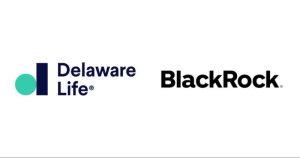Circle CEO: USDC Becoming More Transparent to Meet Accountability Standards

Circle CEO Jeremy Allaire announced that the USDC stablecoin would become transparent, with a summary of USDC reserves and attestations to be published as the company prepares to go public.
Circle CEO Jeremy Allaire, in a series of tweets posted on July 8, offered that Circle would make an effort to increase the transparency of the USD Coin (USDC), as the asset grows in use and exposure. Allaire highlighted this public transparency as a part of its transition in becoming a public company.
Circle prepares to go public
The Circle co-founder and CEO stresses that public transparency is a necessity as major companies and financial institutions begin to deal with the stablecoin. He also points out that it will offer more clarity on the reserves that back USDC — a point which some criticize Tether (USDT) for.
Allaire also confirmed that the information would be held to “the standards of the top financial regulator in the United States, the SEC.” The American regulatory body is doubling down on regulating the crypto market, and it’s clear that crypto firms are taking note. It’s unclear when full-fledged regulation will be laid out, but recent headlines have suggested that it could happen sooner rather than later.
Allaire ends the announcement by saying that Circle intends to be a leader in the matter of public transparency. He also added that self-governance and regulatory models in the space would evolve — indeed it will, as regulators begin to issue orders.
Circle announced last week that it would be going public by the end of 2021, a trend that is very apparent in the crypto industry at the moment. Circle would join the likes of Coinbase and Kraken, the former having held a landmark successful direct listing and the latter expecting to hold an IPO next year.
Transparency and accountability
Circle’s decision to become more transparent would do well to please regulators, who have shown concerns about stablecoins in the past. Perhaps other stablecoin firms will follow suit, in a bid to comply with the ever-increasing scrutiny of regulators across the world.
The Bank for International Settlements (BIS) has commented specifically on this matter, saying that stablecoins and Facebook’s Diem project hold risks for sovereign currencies. The organization has asked for “embedded supervision” of these stablecoins. BIS also mentioned that Central Bank Digital Currencies (CBDCs) would offer the best possible outcome for governments.
It is difficult to gauge the viability of stablecoins in the near to medium-term future, given these comments made by global regulators. On the one hand, they have surged in popularity. But on the other hand, regulators have almost unanimously said that CBDCS would be better in every way.
Disclaimer
All the information contained on our website is published in good faith and for general information purposes only. Any action the reader takes upon the information found on our website is strictly at their own risk.















